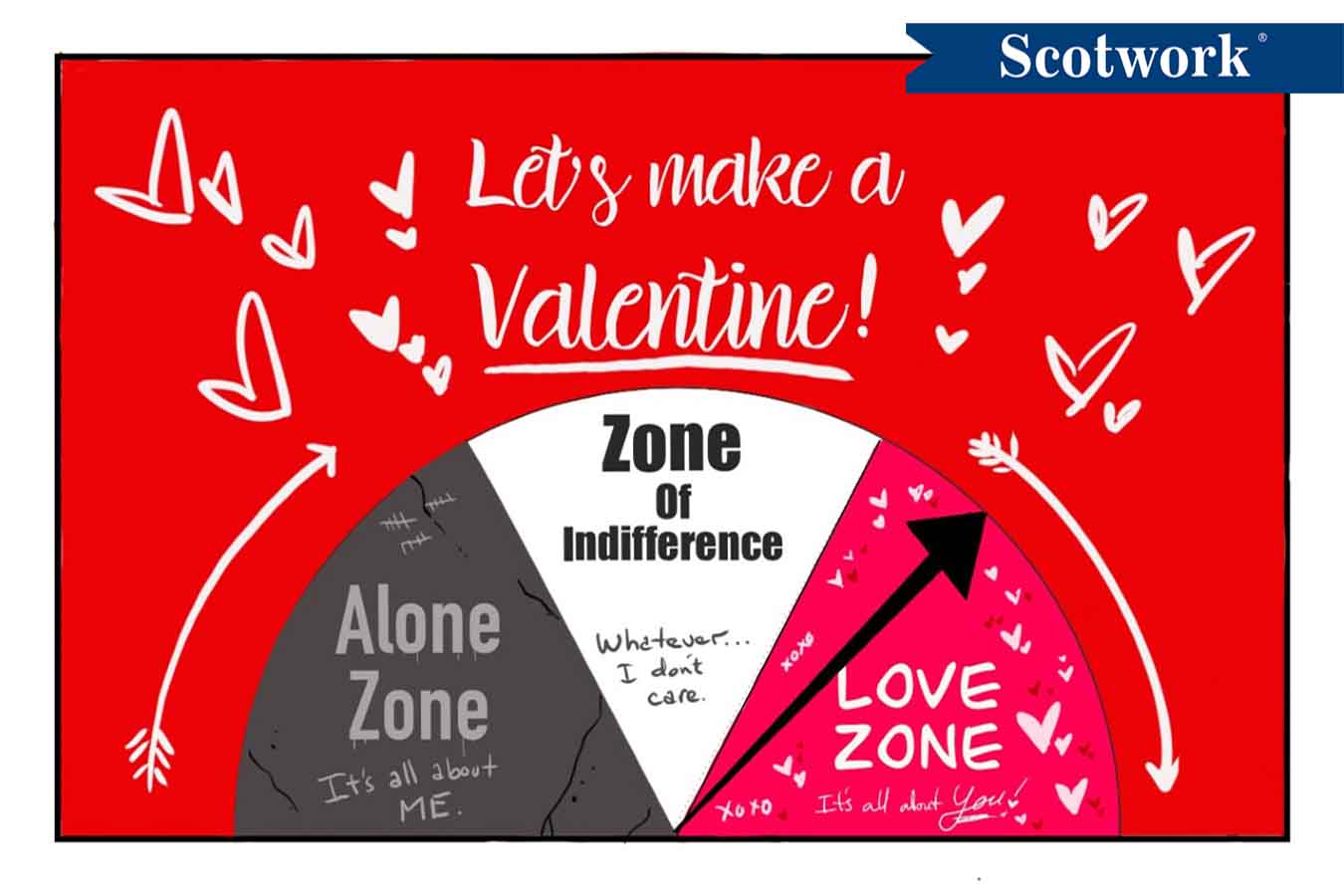I’m a romantic at heart, and as Valentine’s Day approaches and Cupid draws back his bow, I’ve been reflecting on what makes successful relationships endure. I’ve been married nearly 20 years, and I realized what makes our relationship work: My wife, Sophie, and I try to see circumstances from each other’s perspective as well as our own. We’re attuned to each other’s needs.
Attunement is as essential for successful negotiations as it is for romance. In Daniel Pink’s excellent To Sell Is Human, he highlights an experiment in which a gas station’s asking price was higher than what the potential buyer could offer, but some variables, if they came to light, could allow a deal to happen.
The experiment divided participants into three groups. Experimenters told the first group to imagine how the other side was feeling and the second group to imagine what the other side was thinking. They gave the third group only basic instructions. The group that considered the other side’s feelings made more deals than the instructions-only group. The best-performing group was the one that attempted to understand the other side’s perspective (what they were thinking). In fact, three-quarters of that group arrived at a deal that satisfied both parties.
Taking the time to consider the other side’s feelings and perceptions is particularly important when you’re in an ongoing relationship with your negotiating partner. Pink’s experiment got me thinking about a major deal I nearly lost when I wasn’t attuned to a standing client’s perspective.
The deal was for an event partnership going into its second year. The first year had been successful for the client, but the venue’s high cost resulted in my company’s margins being lower than expected. The client needed to agree to a 20% increase for the event’s second year (yikes!). I knew the client might be at their spending limit, since negotiating the original fee had been challenging. Meeting with the client confirmed that there was no clear way the deal would move forward. Like the gas station experiment, the deal’s cost was greater than what the client would pay.
Fortunately, the client did what I should’ve done and worked to see things from my perspective. They asked if there was any way for the event to move forward at the original rate. The only circumstance that would allow us to do that would be finding a less expensive venue, and my operations team had exhausted all known options. The client had a large, private room at a good location and asked if we’d consider using that space. Asking questions resulted in finding an option that got the deal closed!
The next time you must resolve a deal issue, try these 3 techniques to understand the other side’s perspective. You may see the value of what you have in their terms — and uncover more value than you expected.
- Be curious and ask questions. Show genuine interest in the other party. Ask open-ended questions to understand their motives, needs, and constraints. Then listen — really listen — to their response. I was fortunate my client did this when I had not.
- Test your assumptions. List the elements of the deal you think you know but haven’t confirmed. These could include the cost, the timing, or the client’s estimation of the value of the deal. In my example, I assumed my client’s priority was that the event had to take place at a specific kind of venue. Their actual priorities were brand alignment with our publication and a high-level audience of decision-makers.
- Know what’s valuable to them. This is possibly the trickiest technique mentioned here, but it may also be the most valuable. Consider what you have to offer in terms of how the other party values it. For instance, alignment with my publication’s brand was not a hard cost to my team, so I undervalued it from the client’s perspective.
Understanding value in terms of how the other side perceives it helps keep a relationship fresh and aligned. Your friends at Scotwork wish you good relationships in your deals and your life away from work. Happy Valentine’s Day to you — but especially to my wife, Sophie.
We Can Help You Understand the Other Side’s Perspective.
Are you in a deal that’s fast approaching a deadlock? Have you taken a moment to get past your differences with the other side and consider their feelings and perceptions? If not, you may not be placing enough value in what you have. We can help! Drawing on nearly 50 years of real-world negotiating experience, we’ll assist you with getting better deals, saving time, and creating value for all involved — not to mention preserving and even strengthening relationships. Let us partner you with one of our advisers, ensuring that you’ve got the broadest view of your deal.

